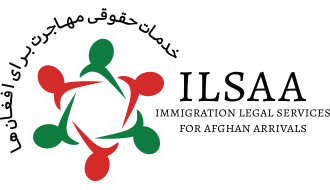Gain access to a compilation of U.S. government reports on human rights practices, international religious freedom, human trafficking, as well as non-governmental organization reports.
Topic: Case Complexities
American Immigration Lawyers Association: Best Practices and Resources for Representing Operations Allies Welcome Parolees and Afghan Nationals
Read this guide for an overview of the most relevant immigration pathways available to Afghan nationals who left Afghanistan after U.S. troops withdrew from Afghanistan in August 2021.
American Bar Association: Quick Guide: Engaging Country Conditions Experts in Asylum Cases
Consult this quick guide as an overview of some of the most common questions new-to-immigration attorneys may have on engaging country conditions experts. Learn how engaging a country conditions expert helps an asylum case.
Duke Law: Defending Refugees: A Case for Protective Procedural Safeguards in the Persecutor Bar Analysis
Read Professor Charles Shane Ellison’s Georgetown Immigration Law Journal article on protective procedural safeguards in the persecutor bar analysis and when the persecutor bar should be applied.
Human Rights First: TRIG and the Taliban
Learn about Terrorism-Related Inadmissibility Grounds (TRIG) and other bars to protection relevant to Afghan asylum applicants.
Catholic Legal Immigration Network, Inc (CLINIC): New Exemptions to Terrorism-Related Inadmissibility Grounds to Aid Afghan Allies
View detailed information from CLINIC on the three exemptions to the Terrorism-Related Inadmissibility Grounds (TRIG) bars in order to aid Afghan allies as announced in 2022.
Human Rights First: Asylum Bar Questions
This non-exhaustive sample includes potential questions that may be asked of your client during the asylum interview.
American Bar Association: Asylum for Afghans 201: Bars to Asylum and Common Concerns
This webinar addresses common issues that arise when asylum cases are filed by Afghans, including bars to asylum that may be relevant for Afghans who lived under Taliban rule.
U.S. Citizenship and Immigration Services: Policy Manual Chapter 2 – Marriage and Marital Union for Naturalization
Learn how applicants can establish validity of marriages in the United States for immigration purposes. Find out which relationships USCIS does not recognize as marriages.
U.S. Citizenship and Immigration Services: Policy Manual Chapter 3 – Review of Inadmissibility Grounds
Chapter 3 of the USCIS Policy Manual provides an overview of the grounds by which an officer may find an applicant inadmissible (unable to seek admission or legal status in the United States). Find examples of evidence that may indicate an applicant is inadmissible.
